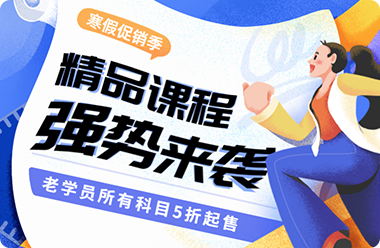2. How to Beat Holiday Stress
Sunshine and Sangria may sound like the ideal cure for all your ills. But holidays can also be a source of stress—and that can affect your health. So if you want to really relax while you're away, follow these simple rules.
Stress is now a major health issue of our time. One survey put the annual cost to British business at 1.3 billion in absenteeism (旷工), with around 100 million workdays lost each year.
If left unchecked, stress can lead to illnesses which affect physical fitness, such as heart disease, high blood pressure and severe aches and pains, particularly neck- and backache.
Yet although work is frequently cited as the main cause, holiday stress can be even more damaging. The traditional summer break, regarded by most people as the highlight of their year, can actually undermine health and put pressure on family relationships.
Instead of tackling the problems before they go away, a lot of people believe a holiday will work magic for them. But holidays are spent in strange places where it may be difficult for tense people to relax.
They may feel even more disturbed if they get the idea that others are having a more wonderful time than they are. It becomes a complex vicious (恶性的) circle, with people coming home more stressed than before they went away.
Holiday preparations involve a series of mini-stresses, like tying up loose ends at work, remembering to cancel the milk and newspapers, boarding the family pet, arranging foreign currency, last-minute shopping, working out how much spending money to take and worrying about securing the home against burglars.
Crowded airports, delayed flights and packed hotels are also major stress factors for most holidaymakers.
Stress experts say we should take two or three short holidays a year instead of a long mid-summer one.
Professor Cary Cooper, psychologist at the University of Manchester Institute of Science and Technology, says: "If your one holiday a year turns out to be a disaster you have nothing to look forward to for another year."
"A big mistake is to take holidays according to the month, instead of when your body tells you it is time to unwind. July and August can be the two most disastrous months for holidays because there are always crowds, queues and delays. Some people like crowds, but holidays are a time for peace, quiet and personal space."
"Another strain is not being able to do what you want on holiday, so you end up compromising, and no-one has a really good time. If the holiday is self-catering (自供伙食的), a wife is going to feel stressed at having to cook, look after the children and do all the other chores she handles at home, while her husband goes off to play golf."
"Disappointment is very stressful. If you have high hopes of your holiday and it lets you down, you won't be refreshed, and may feel in need of another holiday. It's not going to kill you, but it won't help you to recharge your batteries."
"Some people become over-anxious when they are going on holiday," says Professor Ben Fletcher, head of psychology at Hertfordshire University, "and worry about what happens if they are taken ill. So, for them, their chosen holiday spot is not a secure place."
"Many couples and families are simply not used to spending a long time with each other, and some people cannot cope with that. Others may try to establish who is boss on holiday, while a lot of people just find it difficult to relax." (5分)
2.1 According to the passage, which of the following is more likely to have a bad impact on physical fitness?____(1分)
A. Working frequently in summer.
B. Traditional summer holidays.
C. Tackling problems before going away on holiday.
D. Long separation from other family members.
